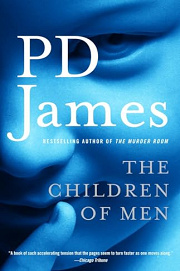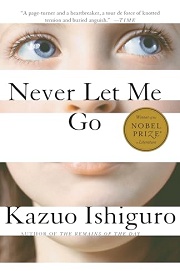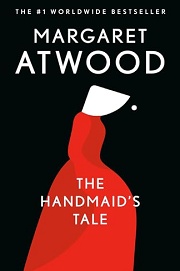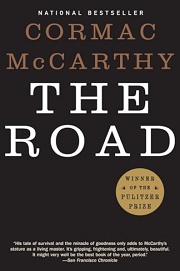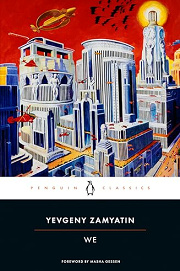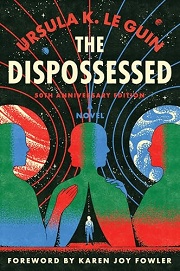Share your thoughts in a quick Shelf Talk!
The Children of Men by P.D. James
In a world where no children have been born for years, a solitary scholar is drawn into a daring struggle that could change humanity’s fate. Cerebral, tense, and deeply humane, The Children of Men explores power, faith, and the flicker of hope in the darkest times.
Have you read this book? Share what you liked (or didn’t), and we’ll use your answers to recommend your next favorite read!
Love The Children of Men but not sure what to read next?
These picks are popular with readers who enjoyed this book. Complete a quick Shelf Talk to get recommendations made just for you! Warning: possible spoilers for The Children of Men below.
In The Children of Men, did you enjoy ...
... a bleak speculative premise used to ask what makes a life meaningful?
Never Let Me Go by Kazuo Ishiguro
If the way Theo wrestles with meaning and responsibility in a world without children—and the haunting Quietus rituals—stuck with you, you'll be drawn to the quiet devastation of Never Let Me Go. Ishiguro uses the sheltered lives of Kathy, Ruth, and Tommy to pose the same aching questions James raises when Theo agrees to protect Julian’s pregnancy: what obligations do we owe one another when society treats people as expendable? Like Theo’s growing moral clarity as he breaks from Xan’s order, these characters confront the cost of hope in a system designed to erase it.
... an authoritarian regime that weaponizes fertility and crushes dissent?
The Handmaid's Tale by Margaret Atwood
If the chilling control of Xan Lyppiatt’s regime—the Councils, the Quietus mass drownings, the coercive "tests"—captivated you, The Handmaid’s Tale offers an equally searing portrait of power built on reproductive panic. As Theo shepherds Julian and the Five Fishes through surveillance and betrayal, Offred navigates Commanders, Aunts, and secret networks that mirror James’s clandestine meetings and dangerous crossings. You’ll recognize the same dread and defiance as small acts of resistance accumulate into a fragile, perilous hope.
... a stripped-down, intimate journey through collapse centered on a fragile bond?
The Road by Cormac McCarthy
If the quiet urgency of Theo escorting Julian toward a hidden future gripped you more than the larger world's politics, The Road is that feeling distilled. Where James narrows to the tense, personal stakes of keeping one mother and child alive under Xan’s shadow, McCarthy follows a father and son across ash and ruin, every step as risky as Theo’s border crossings and safe-house gambles. The intimacy of two people against the end of things delivers the same stark, breath-held momentum.
... first-person diary records that expose a dystopia’s cracks from within?
We by Yevgeny Zamyatin
If Theo’s journal entries drew you in—the way his private notes peel back the Warden’s immaculate facade—We tells a whole rebellion through the protagonist’s numbered diary. D-503’s recorded confessions begin as loyal reports but, like Theo’s shift after witnessing a Quietus and meeting Julian, become dangerous self-revelations that unravel state myths. Watching a regime’s control falter under the pressure of one person’s written conscience will feel uncannily familiar.
... quiet but tense power struggles and ideological maneuvering at the highest levels?
The Dispossessed by Ursula K. Le Guin
If the chess match between Theo and his cousin Xan—the Warden’s calculated reforms, the Councils’ posturing, the betrayals around the Five Fishes—hooked you, The Dispossessed offers political tension of equal subtlety. Shevek’s bid to share a world-changing theory forces him into rival factions, state flattery, and surveillance that echo James’s cabinet intrigues and strategic crackdowns. Like Theo’s fraught moral choices, Shevek’s gambits test how ideals survive when power wants them contained.
Unlock your personalized book recommendations! Just take a quick Shelf Talk for The Children of Men by P.D. James. It’s only a few questions and takes less than a minute.
